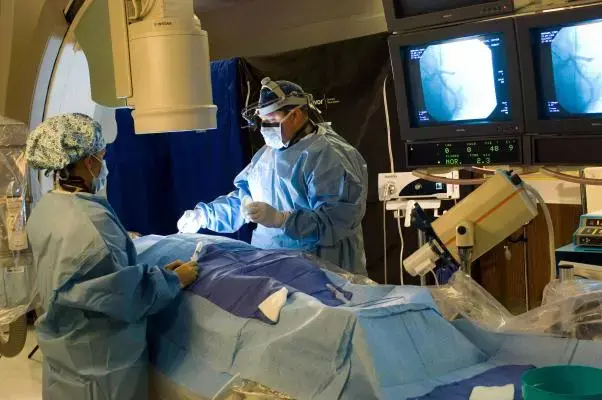- Home
- Medical news & Guidelines
- Anesthesiology
- Cardiology and CTVS
- Critical Care
- Dentistry
- Dermatology
- Diabetes and Endocrinology
- ENT
- Gastroenterology
- Medicine
- Nephrology
- Neurology
- Obstretics-Gynaecology
- Oncology
- Ophthalmology
- Orthopaedics
- Pediatrics-Neonatology
- Psychiatry
- Pulmonology
- Radiology
- Surgery
- Urology
- Laboratory Medicine
- Diet
- Nursing
- Paramedical
- Physiotherapy
- Health news
- Fact Check
- Bone Health Fact Check
- Brain Health Fact Check
- Cancer Related Fact Check
- Child Care Fact Check
- Dental and oral health fact check
- Diabetes and metabolic health fact check
- Diet and Nutrition Fact Check
- Eye and ENT Care Fact Check
- Fitness fact check
- Gut health fact check
- Heart health fact check
- Kidney health fact check
- Medical education fact check
- Men's health fact check
- Respiratory fact check
- Skin and hair care fact check
- Vaccine and Immunization fact check
- Women's health fact check
- AYUSH
- State News
- Andaman and Nicobar Islands
- Andhra Pradesh
- Arunachal Pradesh
- Assam
- Bihar
- Chandigarh
- Chattisgarh
- Dadra and Nagar Haveli
- Daman and Diu
- Delhi
- Goa
- Gujarat
- Haryana
- Himachal Pradesh
- Jammu & Kashmir
- Jharkhand
- Karnataka
- Kerala
- Ladakh
- Lakshadweep
- Madhya Pradesh
- Maharashtra
- Manipur
- Meghalaya
- Mizoram
- Nagaland
- Odisha
- Puducherry
- Punjab
- Rajasthan
- Sikkim
- Tamil Nadu
- Telangana
- Tripura
- Uttar Pradesh
- Uttrakhand
- West Bengal
- Medical Education
- Industry
Can Timing of Nontarget-vessel PCI Impact Patients with ACS & Multivessel Disease ?

Multivessel disease (MVD) among patients with acute coronary syndromes (ACSs) is associated with impaired prognosis. However, the optimal time point of non-culprit‐lesion revascularization remains a matter of ongoing debate.
A recent study suggests that the timing of nontarget-vessel percutaneous coronary intervention (PCI) appears not to have a strong effect on major adverse cardiac events in patients with multivessel coronary artery disease who have had an acute coronary syndrome (ACS).
The study findings were published in the Journal of the American Heart Association on November 24, 2021.
Complete revascularization reduces cardiovascular events in patients with ACSs and multivessel disease. Evidence on comparing different time intervals of staged PCI among patients with ACS is limited. Therefore, Dr Lorenz Räber and his team conducted a study to investigate the impact of early (<4 weeks) versus late (≥4 weeks) staged PCI of non–target‐vessels in patients with ACS scheduled for staged PCI after hospital discharge.
In this cohort study of a large prospective registry of post-ACS, the researchers included a total of 1432 patients who underwent planned PCI (2009-2017). They evaluated the all‐cause death, recurrent myocardial infarction and urgent premature non–target‐vessel PCI.
Key findings of the study:
♦ After a year, the researchers found no significant differences in the crude or adjusted rates of the primary endpoint in early versus late PCI. (7.8% early versus 10.8% late, hazard ratio [HR], 0.72; adjusted HR, 0.80).
♦ Individual components were:
- All‐cause death: 1.5% versus 2.9%, HR, 0.52; adjusted HR, 0.62.
- Recurrent myocardial infarction: 4.2% versus 4.4%, HR, 0.97; adjusted HR, 1.03.
- Non–target‐vessel PCI, 3.9% versus 5.7%, HR, 0.97; adjusted HR, 1.19.
The authors concluded, "In patients with both ACS and MVD scheduled to undergo staged PCI after hospital discharge, early (<4 weeks) compared with late staged PCI (≥4 weeks) was associated with a similar rate of the primary endpoint all‐cause death, recurrent MI, urgent premature non–target‐vessel PCI in this single-centre and all‐comer population."
For further information:
DOI: https://doi.org/10.1161/JAHA.121.023129
Medical Dialogues Bureau consists of a team of passionate medical/scientific writers, led by doctors and healthcare researchers. Our team efforts to bring you updated and timely news about the important happenings of the medical and healthcare sector. Our editorial team can be reached at editorial@medicaldialogues.in.
Dr Kamal Kant Kohli-MBBS, DTCD- a chest specialist with more than 30 years of practice and a flair for writing clinical articles, Dr Kamal Kant Kohli joined Medical Dialogues as a Chief Editor of Medical News. Besides writing articles, as an editor, he proofreads and verifies all the medical content published on Medical Dialogues including those coming from journals, studies,medical conferences,guidelines etc. Email: drkohli@medicaldialogues.in. Contact no. 011-43720751


